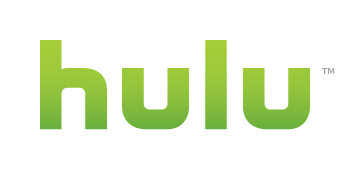 If yesterday’s cushy article on Hulu in Fortune is any indication, Internet TV site Hulu is getting ready to leave private beta and launch to the public. Press like this doesn’t just happen without the company asking for it. They’re preparing for the big show.
If yesterday’s cushy article on Hulu in Fortune is any indication, Internet TV site Hulu is getting ready to leave private beta and launch to the public. Press like this doesn’t just happen without the company asking for it. They’re preparing for the big show.
Hulu was expected to launch this month anyway, and the article mentions an “early March” release. And apparently they’re gathering analysts for a Monday briefing.
And as much as I respect both of the writers (David Kirkpatrick and Adam Lashinsky), the article is way too generous in its portrayal of Hulu and its history. An example quote: “But the secret of Hulu’s initial success – the thing that made believers out of the skeptics – is the power and simplicity of the website itself.” Another: “The result is the elegantly transparent interface that has wowed even its biggest detractors.” Fortune seems very appreciative to get this exclusive level of access. While they mention that bloggers were highly critical of Hulu prior to launch, they fail to talk about the very good reasons behind that criticism.
Good thing I’m here to remember.
Hulu: A Very Troubled Start
In the months following the company’s March 2006 initial press release, we gave the joint venture a lot of grief for failing to pick a name for the project, eventually settling on a name – Hulu – that meant “cease” and “desist” in Swahili (ironic, given that Hulu’s parent companies send out so many of them), copying Google’s mission statement, and receiving not the greatest vote of confidence from NBC Universal’s own chief digital officer (one of the joint venture partners).
Behind all of this criticism was a high degree of doubt that NBC and News Corp. were ever going to get Hulu out the door before the joint venture became irrelevant. In September, NBC had even announced a video downloading service that appeared to cannibalize its own joint venture with News Corp.
But all that changed when we saw the beta product. Hulu did a lot of things right. The video quality was acceptable. The controls were intuitive. And there was some great content on the site, including a few movies and some archived television shows.
So yeah, we changed our tune on Hulu once the product actually launched, but that’s the point. The product spoke for itself. Two months ago, users even voted Hulu the top video startup award at the Crunchies, beating out Joost and others.
Here We Go Again?
The problem with Hulu was the sheer amount of hype and unfulfilled expectations the company generated a full eight months before it went into private beta. Early messaging was terrible (a focus on respecting copyright, and the fact that they were creating what they called “the largest advertising platform on earth.” instead of talking about user features). A product was promised by Summer 2007 but was delayed repeatedly. Eventually they had to acquire a Chinese startup to get to the finish line.
The product still has issues – I regularly find that streaming is jumpy, for example. That shouldn’t happen at all given their resources, and certainly not in a controlled private beta. They have also been very slow to get archived content on the site – even though it would have been a great way to fight the writer’s strike that resulted in an absolute halt to any new stuff. People outside the U.S. still can’t view the content.
In short, Hulu is far from perfect. And if the Fortune article is a signal of a new round of hype around the service, don’t be surprised when bloggers criticize them for not meeting those sky high expectations. And it’s not too late to start calling this thing Clown Co. again.
My suggestion would be to skip all the hoopla this time and let the product speak for itself. Burn those marketing and PR dollars on a few more servers to keep the streaming steady. Don’t hold analyst briefings. And let the users find you because their friends can’t stop talking about how great the service is. See here for an example of how that’s done.